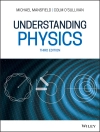This book analyzes metaphysical consequences of the quantum theory of many particles with respect to the fundamental notions of identity, individuality and discernibility. The main focus is on the proper interpretation of the quantum formalism in relation to the role of permutation invariance and the adequate representation of the properties of individual subsystems. Two main approaches to the issue of the individuation of quantum particles are distinguished and thoroughly discussed. These approaches differ radically with respect to their metaphysical consequences – while one of them implies the complete indiscernibility of quantum particles of the same kind, the other one restores the possibility of discerning individual particles by their properties. We connect the problem of quantum individuation and discernibility with an analysis of the concept of quantum entanglement, and we also discuss identity over time and in counterfactual scenarios.
विषयसूची
Chapter 1. Introduction.- Chapter 2. Indiscernibility of quantum particles: a road to orthodoxy.- Chapter 3. The source of the Symmetrization Postulate.- Chapter 4. Logic and metaphysics of discernibility.- Chapter 5. Qualitative individuation of same-type particles: beyond orthodoxy.- Chapter 6. The heterodox approach to absolute discernibility and entanglement.- Chapter 7. Two views on quantum individuation.- Chapter 8. The metaphysics of quantum objects.
लेखक के बारे में
Tomasz Bigaj is Professor of Philosophy at the University of Warsaw, Poland. His previous publications include the book
Non-locality and Possible Worlds (2006) and numerous articles on various topics in philosophy of physics, philosophical logic and analytic metaphysics (
Synthese, Erkenntnis, Foundations of Physics, Foundations of Science).












